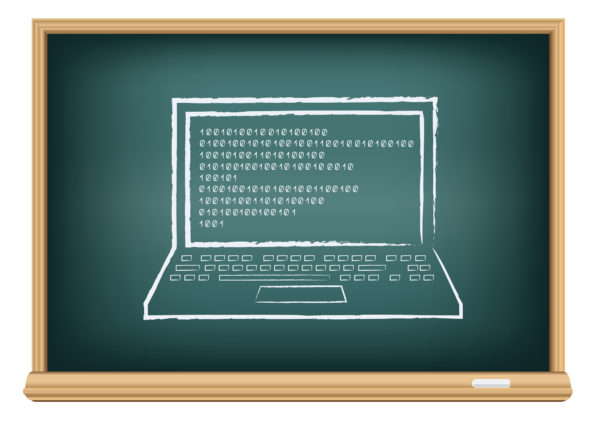I’ll admit I’ve been feeling a bit burnt out on coding tools. Coding is one of the most crowded categories in edtech. And while there are a ton of great tools for students of any ability level, many of these tools have hit on the same winning formula.
So does that mean coding is over? Not quite yet. In fact, the coding genre of edtech seems to be evolving.
One of the bright spots at this year’s International Society for Technology in Education (ISTE) conference has been how many developers are not just iterating on the tried-and-true coding formula but exploring new frontiers that offer students new ways to learn — from VR and hardware hacking to monthly subscription boxes to courses and curriculum that blend technical skills with “soft” skills.
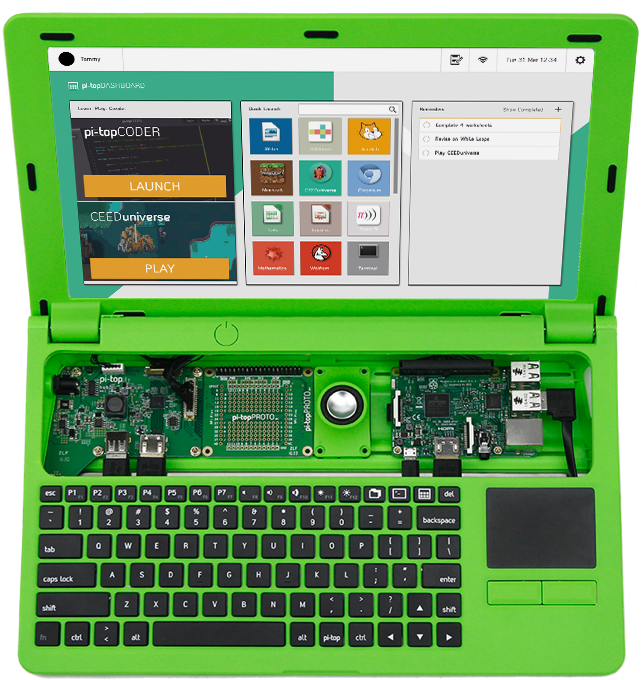
Hardware Hacking: Pi-Top and Piper
Computer scientists and software engineers know that it’s important for coders to have an understanding of how computers are made and work. Knowing a bit about the hardware side of things helps inform a programmer’s understanding of why code works the way it does. As someone who likes to build his own computers, I can also say it’s just flat-out fun to put together a PC and swap in and out components. It’s like the nerdier version of hot-rodding.
Pi-Top and Piper both understand this, too, and have platforms that allow students — much like a littleBits kit — to assemble and modify modular computers that can then be used as coding platforms. On the coding side of things, Pi-Top has it own stylish game (CEED) students can use to learn about the basics of code, and Piper integrates with Minecraft.
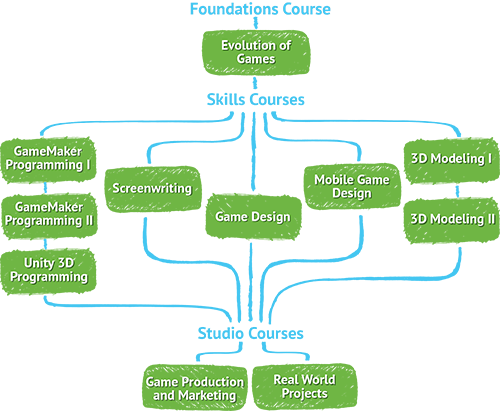
Realistic, Cross-Disciplinary Game Design: Zulama
A lot of tools out there simplify game design, offering approximations of real-life coding that make it easier for kids to jump in and make something quickly. There are also pro-level tools such as GameMaker Studio that some enterprising teachers have adapted for student use. However, the real work of game design isn’t only coding games but conceptualizing them, building them, testing them, and marketing them. This is a process that requires more than technical skills, from storytelling to business to so-called soft skills such as collaboration.
Zulama–based on the successful college-level game design and development curriculum at Carnegie Mellon’s Entertainment Technology Center–effectively combines all these diverse skills into a truly comprehensive curriculum. Courses range in length and focus (from 3D modeling to the history of North American play and gaming), but all feature discussions, true PBL, assessments, and online and offline activities. Don’t worry if all this seems intimidating: There are PD resources that promise to get any teacher up to speed.
(Next page: Two more fresh coding resources)
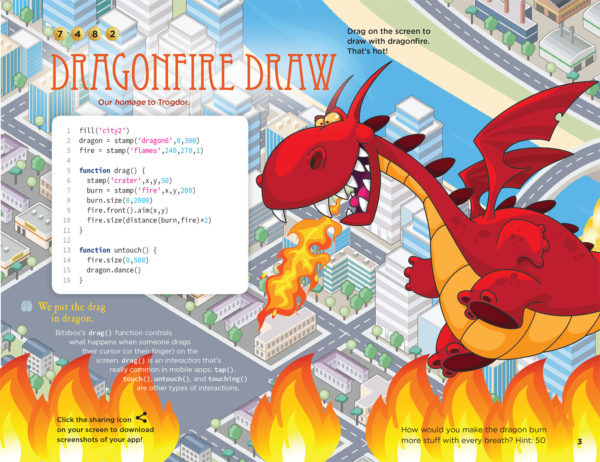
Monthly Inspiration: Bitsbox
There seems to be a subscription box for every interest, and thanks to Bitsbox that now extends to coding. Bitsbox sends kids a box each month containing coding projects — almost like little recipe cards for apps. These projects have fun themes (such as making robots dance or throwing homework into a black hole) and invite students to play around with pre-written code to modify small-scale apps they can show and share.
As kids’ skills develop month to month, they can take on bigger challenges, even writing their own code using Bitsbox’s version of JavaScript. Bitsbox’s bet is that the monthly subscription-box format does something a lot of other competitors in the coding space don’t do: hook kids early and engage them over time. They definitely have a shot; I can imagine kids who might burn out on a typical coding app could get reengaged by Bitsbox’s arrival each month. Beyond the monthly model, teachers and librarians might want to check out their classroom kits.
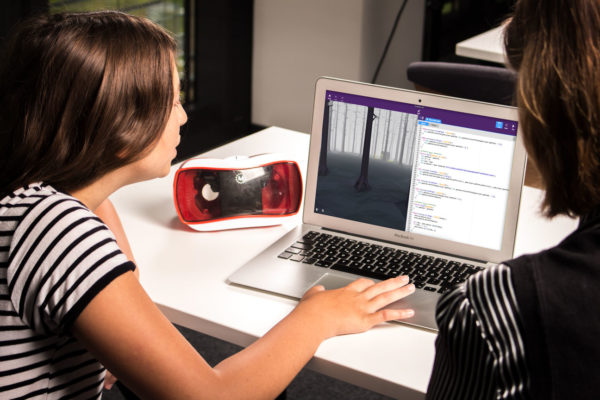
Virtual Reality Storytelling: CoSpaces
CoSpaces is only the second developer (zSpace being the other) I’ve seen working on how to turn students from virtual reality (VR) consumers into VR creators. Of course, consumer-facing products such as Minecraft or Tilt Brush can be adapted for classroom use, but CoSpaces is launching a classroom-specific solution, CoSpaces Edu. They’ve built an interesting platform that effectively turns VR into a creative platform for student expression — from telling stories to modeling environments to exhibiting work.
For students and teachers who want to add depth to the experience, there’s also support for scripting using either Blockly (beginner) or JavaScript (advanced). Using one of these languages, students can model and animate objects, adding an extra layer of learning to the engaging experience of VR creation.
![]() [Editor’s note: This post originally appeared on Common Sense Education.]
[Editor’s note: This post originally appeared on Common Sense Education.]
- High school students say AI will change the workforce - April 18, 2024
- Motivating students using the Self-Determination Theory - April 17, 2024
- Michigan Virtual’s statewide workgroup releasing AI guidance for K-12 educators - April 17, 2024

